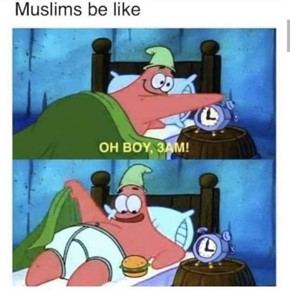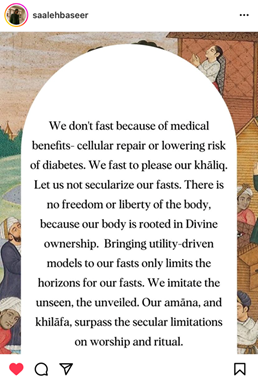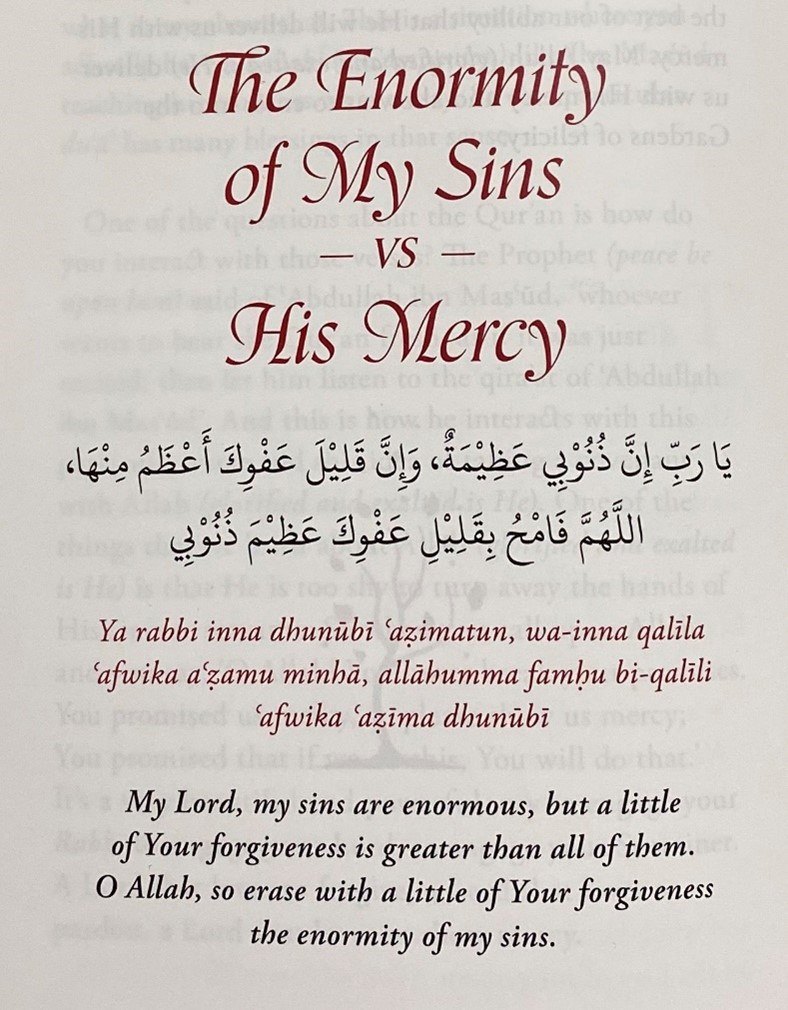King’s College London staff member (Sustainability Projects Assistant) and former KCLSU VP Welfare & Community 2020/21, Tasnia Yasmin, shares what the Islamic holy month of Ramadan means to her.
Narrated Abu Huraira: Allah’s Messenger (peace be upon him) said, “When Ramadan begins, the gates of Paradise are opened.” (Sahih al-Bukhari 1898)
Every year I think the ‘not even water?!’ joke is outdated, but every year I get asked the same thing.
Ramadan is the ninth month of the Islamic calendar (we follow the lunar calendar which means Ramadan goes back 10 days every year) and is a month in which Muslims abstain from food and water and bad habits. From sunrise to sunset, we do not consume anything and engage in spiritual enlightenment.
Spiritual enlightenment:
I saw something on Instagram recently about how sometimes an automatic reaction to someone asking about why we fast is to talk about food and the health benefits. There’s an abundance of research showing how intermittent fasting is beneficial, but that is not the reason Muslims fast.
There is really no other feeling that you get until the Holy month of Ramadan is here – when you dedicate all your time and attention on God; to thank him for what he has provided, to ask to get closer to Him and to pray for the less fortunate and the oppressed. It is a spiritual cleansing of the soul and a month where you dedicate your time and energy to bettering yourself and engaging in good habits.
Narrated By Abu Huraira : The Prophet said, “Whoever established prayers on the night of Qadr out of sincere faith and hoping for a reward from Allah, then all his previous sins will be forgiven; and whoever fasts in the month of Ramadan out of sincere faith, and hoping for a reward from Allah, then all his previous sins will be forgiven.” (Sahih al-Bukhari 1901)
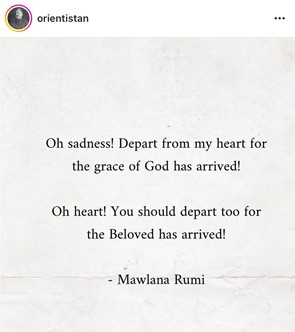
Rumi has become completely secularized in the West, most of his poetry of love and devotion is about God and our relationship with Him.
Every Muslim is on their own journey through this Holy month. Many use it as a time of spiritual recharge, building habits that they can incorporate throughout the year, re-incorporating practices which they may have stopped. We do engage with these acts throughout the year, but the soul yearns for Ramadan – a special month where your good deeds are multiplied and where you are shown the mercy of God. What is brilliant about Ramadan is that no matter where your imaan is, as long as you talk to Allah and engage with him during this blessed month, He will give. Poor, rich, ‘Ramadan Muslim’ or a Muslim who engages with regular acts of ibadaah – we are all the same under the eyes of God. Ramadan equips me with the tools to continue sustain these habits, to become a better Muslims and to refresh my mind, body and soul.
Abu Huraira reported: The Messenger of Allah, peace and blessings be upon him, said, “Take up good deeds only as much as you are able, for the best deeds are those done regularly even if they are few.” (Sunan Ibn Mājah 4240).
Charity:
When Maghrib hits, silence is met in households whilst everyone gulps down their water and stuffs dates in their mouth. But this month reminds us about the rest of the Ummah who are unable to be met with a fabulous spread of food and an array of choice. Muslims across the world are suffering because of the environmental crisis, war, Islamophobia and much more. In the UK alone, the cost of living crisis in the UK has meant that an estimated 50% of UK Muslim’s are living in poverty. One act of worship which is heightened in Ramadan is charity – giving to the less fortunate and those who need it most (one platform alone saw over £10 million in donations across the last 10 nights of Ramadan). Here is a list of food banks and mosques to donate to and a charity initiative I’m working on (completing a school that we have built in Gambia – we raised over £60,000 over the last 2 years, mostly in Ramadan!).
Muhammad, upon him be peace, said: “When a man dies, his deeds come to an end except for three things: Sadaqah Jariyah (ceaseless charity); a knowledge which is beneficial, or a virtuous descendant who prays for him (for the deceased).” (Riyad as-Salihin 1383).
And of course, to celebrate the end of Ramadan we have Eid-al-Fitr; it is a day of joy, happiness, getting together with family and friends and celebrating the month.
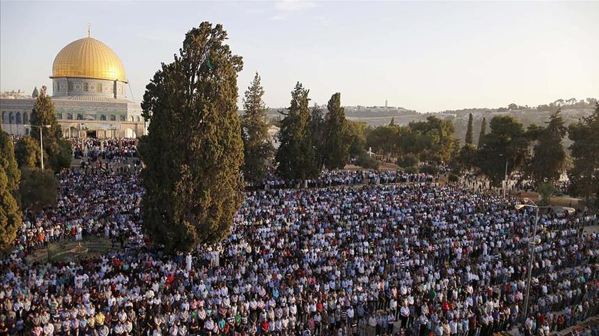
Over 100,000 Muslims praying the Eid prayer in one of the most holy sites in Islam, Al-Aqsa Mosque, Palestine.
To those who are celebrating, may Allah accept ours fasts, our good deeds and our charity. Ramadan Mubarak!
You can view the Ramadan timetable for this year here.
Key terminology
- Ramadan Kareem/Ramadan Mubarak – how to wish someone a blessed Ramadan.
- Fajr – the first prayer of the day (out if 5) just before sunrise – Muslims will wake up to eat their morning meal before this prayer.
- Maghrib – the 4th prayer of the day at sunset and when Muslims break their fast.
- Suhoor – the morning meal before Fajr.
- Iftaar – the meal where you break your fast.
- Ummah – the collective Muslim community.
- Imaan – faith.
- Ibaadah – worship.
- Eid Mubarak – how to wish someone a happy Eid.
